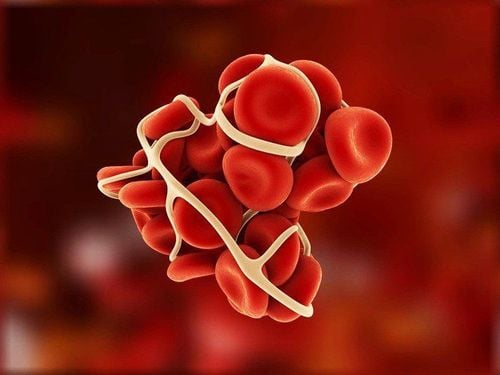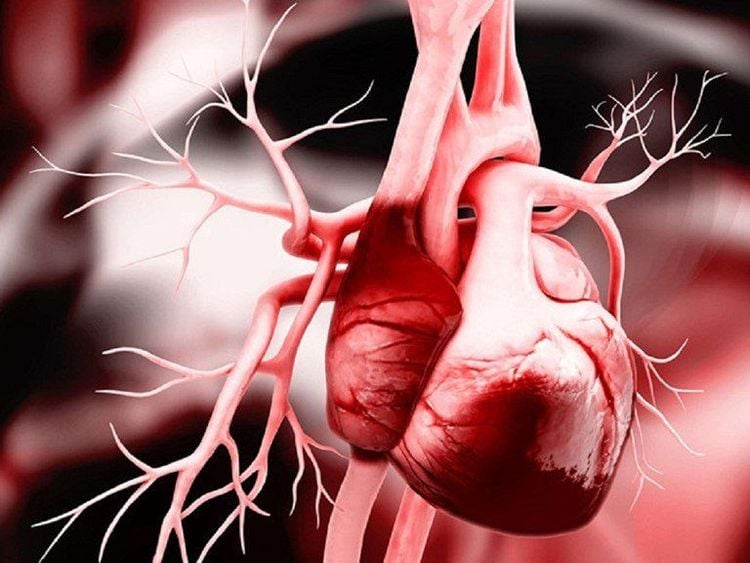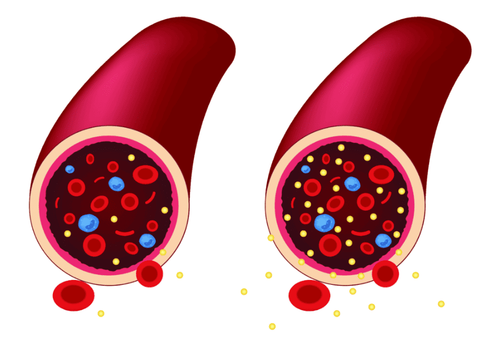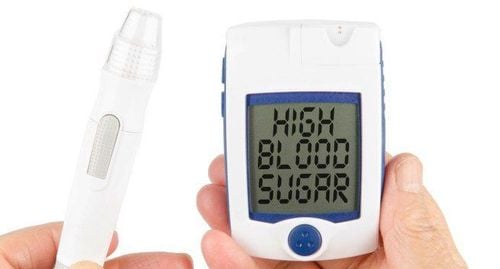This is an automatically translated article.
1. What is an acute illness?
Acute illness refers to illnesses that have a sudden onset, occur over a limited period of time, and are often severe.An illness described as acute indicates that it is of short duration, as a consequence of recent onset. The quantification of what is “short” and “recent” can vary from disease to disease and vary with context. But the essence of "acute" is always the opposite of chronic disease - indicating long-term disease.
The word “acute” also implies two other meanings: sudden onset and severity. As in acute myocardial infarction (AMI), there are both sudden and severe elements of an acute illness.
Acute often refers to conditions that are as urgent as in acute myocardial infarction, but it is not always so serious. For example, acute rhinitis is often synonymous with the common cold, which is an acute but not serious illness.

And not all acute illnesses are serious, and vice versa. For example, a mild sore toe caused by an acute injury, or an acute upper respiratory infection, acute gastroenteritis is usually mild and resolves within a few days or weeks.
However, the word “acute” is also sometimes used to refer to a stage of an illness. Sometimes "acute" is also used in the definition of certain diseases such as acute leukemia, acute respiratory syndrome, acute myocardial infarction, acute hepatitis,... to distinguish it from chronic forms of the disease, or to highlight its sudden onset.
Trắc nghiệm: Bận rộn có ảnh hưởng đến sức khỏe của bạn không?
Cuộc sống hiện đại khiến chúng ta vì quá bận rộn mà quên chăm sóc sức khỏe cho chính mình. Ai cũng biết rằng lịch trình làm việc cả ngày có thể khiến bạn kiệt sức, nhưng cụ thể bận rộn ảnh hưởng thế nào tới sức khỏe? Hãy cùng làm thử bài trắc nghiệm dưới đây.
2. What is the cause of acute illness?
Acute illness is usually caused by a virus, bacteria, or another infection. It can also be caused by trauma such as a fall, car accident, or drug abuse. However, the disease can also be caused by other causes from within the patient's body such as in acute myocardial infarction, which is caused by a blood clot that has formed in the body before, moving to and blocking a branch. of the coronary arteries that supply blood to the heart.
3. Some common acute diseases
Acute diseases can be divided into two categories:Mild acute illness Severe acute illness Some common mild acute diseases include:
Musculoskeletal diseases: trauma, acute back pain, gout, ... Respiratory disease: upper respiratory tract infection, patients have symptoms such as cough and cold, pain in the throat, sore throat, dizziness,... Digestive disease: indigestion, diarrhea, nausea , vomiting, acute abdominal pain, constipation,.... Neurological diseases: dizziness, headache, sharp pain,... Dermatological diseases: rash, allergic urticaria, itching,... Cardiovascular disease: irregular heartbeat (palpitations), cold extremities, swollen ankles,... Severe acute illness can be divided into the following forms:
Alarm symptoms: the patient has signs signal of a potentially serious problem that must be checked and monitored. Acute Serious Illness: An acute illness in which the illness poses a serious threat to the patient's physical or mental health, well-being, or survival. Patients self-recognize their health problems as acute serious conditions such as: acute myocardial infarction, hemiplegia due to stroke,... Common acute serious diseases include: such as:
Heart attack Stroke

Cancer: colorectal cancer, stomach cancer, lung cancer, brain tumor,... Severe depression Acute pneumonia Stomach ulcer Acute inflammatory bowel disease .... Acute exacerbation of the existing chronic condition: the patient has a chronic illness, which may have acute flares that are dangerous to the patient. Some chronic diseases can have an acute episode such as: Acute exacerbation of chronic obstructive pulmonary disease (COPD). Acute exacerbation of asthma .. Acute exacerbation of rheumatoid arthritis . Acute exacerbation of viral hepatitis. Thus, acute illness is defined as illness that occurs suddenly, usually for a short period of time, and is usually severe. But there are still mild acute conditions, not too dangerous. The word “acute” can also be used to refer to an episode of illness, an outbreak of a chronic illness.
Vinmec International General Hospital is one of the hospitals that not only ensures professional quality with a team of leading medical doctors, modern equipment and technology, but also stands out for its examination and consultation services. comprehensive and professional medical consultation and treatment; civilized, polite, safe and sterile medical examination and treatment space.
Customers can directly go to Vinmec Health system nationwide to visit or contact the hotline here for support.
Articles refer to the source: webmd.com













